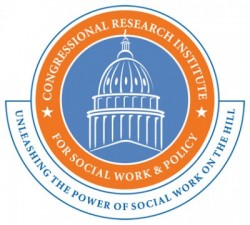When you think about it, the concept of “one person, one vote” is relatively new to the American experience. It was not until 1920 that the 19th Amendment to the Constitution was ratified giving women in the United States the right to vote. African Americans did not receive full suffrage until the passage of the Voting Rights Act in 1965. In its early stages, voting in the United States was restricted to white men who owned property or paid taxes. At various points in our history, both Catholics and Jews were denied the right to vote. Efforts continue today to restrict voting opportunity and dilute the representational power of minorities, young people and others who lean toward the Democratic Party. Practices such as weak regulation of campaign financing and gerrymandering legislative districts have resulted in skewed election results.
This week the Supreme Court began deliberating Evenwel v. Abbott, a case brought by The Project on Fair Representation on behalf of a group of voters in Texas that could very well transform the notion of “one person, one vote.” Currently legislative districts are configured according to the total population within states with each district containing relatively equal numbers of residents. The idea is elected representatives are voted into office to represent people—not land and trees. These voters in Texas are claiming that only registered or eligible voters should be included in the population count when legislative districts are apportioned—that residents under the legal voting age or otherwise ineligible to vote should be excluded when drawing representational lines, giving disproportionate power to suburban and rural districts that tend to be whiter and more conservative.
 Project on Fair Representation’s director Edward Blum is the mastermind behind a number of Supreme Court cases seeking to roll back civil rights gains by African Americans. He brought Shelby County v. Holder to the Supreme Court whose ruling in June 2013 in favor of the plaintiff struck down the pre-clearance clause in the Voting Rights Act. He has initiated more than a dozen lawsuits in the past 25 years, many of them attacking affirmative action and voting rights. Listed as a scholar with the conservative American Enterprise Institute, he credits his success to his ability to match the right plaintiffs with high-powered law firms.
Project on Fair Representation’s director Edward Blum is the mastermind behind a number of Supreme Court cases seeking to roll back civil rights gains by African Americans. He brought Shelby County v. Holder to the Supreme Court whose ruling in June 2013 in favor of the plaintiff struck down the pre-clearance clause in the Voting Rights Act. He has initiated more than a dozen lawsuits in the past 25 years, many of them attacking affirmative action and voting rights. Listed as a scholar with the conservative American Enterprise Institute, he credits his success to his ability to match the right plaintiffs with high-powered law firms.
Ari Berman, author of the award-winning book Give Us The Ballot sees the Evenwel v. Abbott case as an assault on the political power of people of color. He writes in The Nation: “A negative ruling would exacerbate the many ways in which representation is already titled against minority communities, in Texas and elsewhere, through gerrymandering, mass incarceration, restrictions on voting, economic disinvestment, and residential segregation,” he wrote in the Nation. “People of color make up 37 percent of the US population but hold only 10 percent of elected seats; Latinos and Asian Americans are 22 percent of the population but hold fewer than 2 percent of elected offices.”
The fact that Supreme Court agreed to hear the case is worrisome to say the least. The principle of “one person, one vote” is considered settled law. It was initially settled in 1962 when the Supreme Court ruled in Baker v. Carr that the Court could rule on matters of legislative apportionment. That case is one of a dozen landmark Supreme Court cases being showcased on C-SPAN. The Court ruled the following year in Reynolds v. Sims that the Equal Protection Clause in the 14th Amendment demanded “no less than substantially equal state legislative representation for all citizens….” Once again, the Supreme Court is running the risk of being judged as politically motivated.
CRISP’s impending Voter Empowerment Campaign with Influencing Social Policy (ISP) and the Nancy A. Humphreys Institute for Political Social Work at the UConn School of Social Work is sorely needed to resist attempts to limit the political power of many of our nation’s more vulnerable citizens. More people need to understand the issues. More need to register to vote. More need to cast their ballots in every available election.
The post One Person, One Vote Will Be Defined By Supreme Court appeared first on Congressional Research Institute for Social Work and Policy.
Written By Charles E. Lewis Jr., Ph.D
One Person, One Vote Will Be Defined By Supreme Court was originally published @ Congressional Research Institute for Social Work and Policy » Charles Lewis and has been syndicated with permission.
Sources:
Our authors want to hear from you! Click to leave a comment
Related Posts







